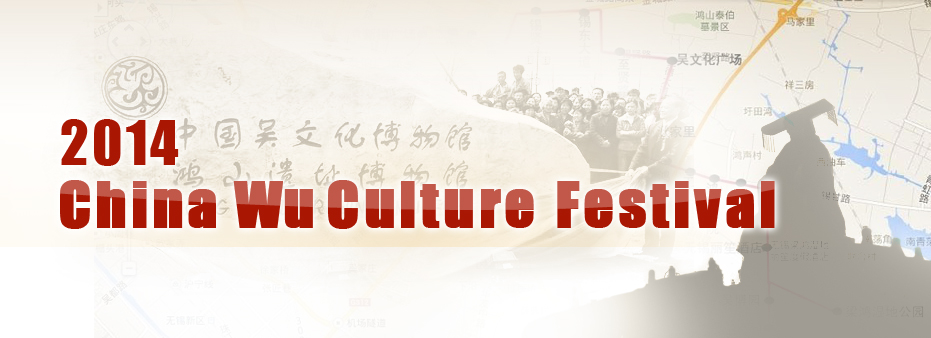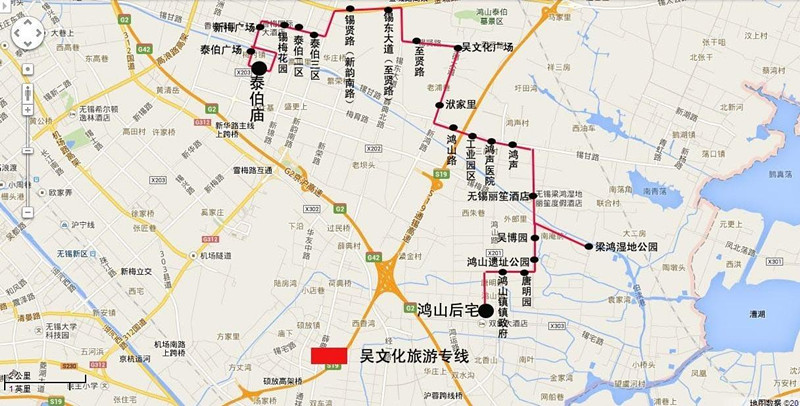?
|
 |
|
Wu culture festival in Wuxi |
Wu Culture |
|
When the China (Wuxi) Wu Culture Festival for 2014 opened, on April 10 on Wu Culture Plaza in the Wuxi New District, it attracted more than 2,000 people from various countries and regions to the opening ceremony and as a chance to "seek their roots". There was an Wu Culture performance on opening day, and?also a Qin Bo worship ceremony to commemorate the sages of the past and the Wu spirit of honoring virtue and culture, being practical, and coming up with new ideas. Wu culture is a major part of South China culture, with its own distinct reagonal characteristics, which has attracted praise of its achievements for hundreds of years, and has promoted the economic and social development of South China and contributed to Chinese culture as a whole. And Wuxi, as an important Wu culture site, has the responsibility of protecting the culture, hence the "Famous Culture City" promotion. The cultural activities of Central Digital TV Calligraphy Channel ran consecutively with this year's Wu Culture Festival to promote socialist values, use culture to educate the masses, direct social development, reflect the radiance and beauty of urban history, show the glory of Wu culture in a new period, and provide strong cultural support for Wuxi in the modernization process.?
|
This refers to the material and spiritual culture of the region of Wudi and developed before the period of the Wu State (12th century BC-473 BC). The culture reached its peak during the Sui (AD581-618), Tang (AD618-907), Song (960-1297), Yuan (1271-1368) and Ming (1368-1644) dynasties after developing during the Warring States Period (475-221BC) and the Qin (221-206BC), Han (206BC-220), Wei (AD 220-265), Jin (AD 265-420) and Southern and Northern (AD 420-581) dynasties. During the Qing Dynasty (1644-1911)and the early modern age, it changed from a static traditional culture to a more modern one in feudal and capitalism societies. Over the last decade, the culture festival here has given the city greater recognition and has shown the rich culture of Wudi under the banner of "Inheriting Wudi civilization, exploring cultural heritage, highlighting the city's uniqueness and constructing a cultural city". More recently, people from Taiwan have joined people from the mainland as well as from Hong Kong and Macao in coming to worship their ancestors and take part in the temple fairs, forums and theatrical performances, which has caused the culture festival to become a festival for all of Wuxi and it has been honored as one of China's best known festivals.
|
|
?Tours in Wuxi | |
|
 | |
|
Main roads along the traveling routes: Start from Hongshan (backyard), pass through Jinhong Road, Feifeng Road, Xigan Road, Xinhong Road, Zhixian Road, Xidong Avenue, Xitai Road, South Xinyun Road, Xiyi Road, Xinhua Road, Meiyu Road to Taibo Temple. |
Main Sites:
Hongshan (backyard), Hongshan town government, Tangming Park, Hongshan National Heritage Park, Wubo Park, Liang Hong National Wetland Park, Hongshan Ecological Park, Hongsheng, Hongsheng Hospital, Industrial Park, Hongshan Road, Fujiali, Wu Cultural Plaza, Zhixian Road, Xidong Avenue (Xicang), Xinjin Road, Taibo 3rd Area, Taibo 2nd Area (Citizen Square), Ximei Garden, Xinmei Plaza, Taibo Plaza,Taibo Temple |
?
|
|
| ||||||
?
|
|
|